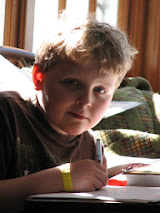 On the summit, after 8 hours of climbing. Four hours of down-climbing to come....
On the summit, after 8 hours of climbing. Four hours of down-climbing to come....Photo by John.
(More Pictures soon)
Into a cloud sea far below
I lonely watched the red sun go.
Then turning, miracle of glad surprise
Enchanted saw the full moon rise.
-G. E. Schurman



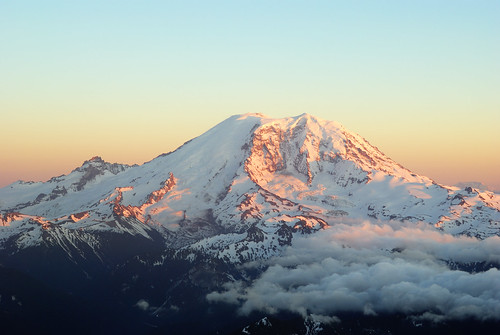
When it rises like a misshapen moon over downtown Seattle, the mountain entrances me, arrests my attention, and rouses my imagination; it makes me weave on wet highways.
On early mornings Rainier wakes above siesta-rate motels on Highway 99, above the waterfront's dromedary cranes and the grey dimple of the Kingdome, above the Space Needle and the Columbia Tower and Tokyo-bound 747s and everything that lives and everything that doesn't, as far as the eye can see. Rainier wakes higher than most of the air we breathe. The sight of it has nearly killed me. More than once its spell has been broken by the headlights of an oncoming car bearing down on my southbound self speeding along the northbound lane. The mountain never appears in the same place with the same face twice. It possesses a Cheshire talent for appearing and disappearing at will. From the highest hill it may lie shrouded in mist, only to show itself an hour later from the middle of Puget Sound. People who have lived in the Pacific Northwest all their lives still stop and stare when Rainier reveals itself. The moment crackles with the thrill of Nature being caught unaware, like seeing an eagle snatch a sockeye from the Sound. On clear winter days the Olympic and Cascade mountains flank the trough of Puget Sound like a fence of whitecapped waves. We've got mountains like Iowa's got flat. And yet the local vernacular admits only one "Mountain," and when Rainier rises we tell each other, "The Mountain is out." Mount Rainier is at once the most public symbol of the Pacific Northwest and its most sacred private icon. A friend once disclosed that she says a prayer whenever she sees it. A stranger I met on its high southern flank told me, "You must love this mountain as much as I do," but his reverent tone of voice told me I couldn't. Lou Whittaker, who has climbed Rainier more than one hundred fifty times, told me about returning home from a Himalayan expedition and catching sight of the mountain and feeling it snap his breath clean away.
Like rain and rivers and trees, the mountain is a continuous presence in our lives, but in our psychological landscape it occupies a place separate and greater than the forests and falling water. We look at Rainier and feel love for a mountain, if such a thing is possible. The mountain inspires in us a feeling akin to spiritual awe: reverence, adoration, humility. We look at Rainier and regard the vastness of God; yet we look at it and claim it as our own. This strange relationship we have with the mountain is romantic, uninformed, even presumptuous. Rainier is a mountain few of us know.
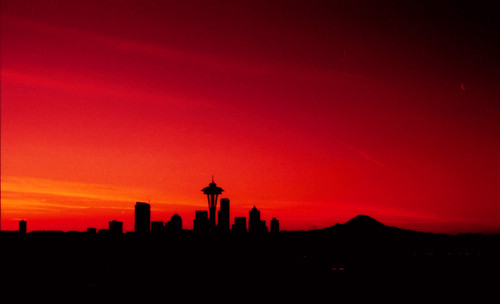
To: PED-ONC-SURVIVORS@LISTSERV.ACOR.ORG
Sent: Thu, 5 Jun 2008 7:12 am
Subject: Re: [PED-ONC-SURV] Life after treatment ??
Good Morning Fran,
I also wanted to share my congrats because it is
such a miracle to get to that point one is "off
treatment." My son is a neuroblastoma survivor and
we had so many side effect issues once he was off
treatment, that treatment simply adjusted to those
things. It took two years before those symptoms
subsided. Or maybe I should say "settled out." We
have lasting effects. He has mod-to-severe hearing
loss, he has only one kidney, he still only eats a
very bland diet. He experiences horrible migraine
clusters. That is the way it is - our normal. Off
treatment for us was eight years ago. Josh's body
has changed, has matured, and the chemo shows its
effects. He's entered puberty early. New thyroid
concerns have revealed themselves. His hearing loss
has become active again and he is losing slightly
more hearing. These types of side effects are both
a trumpet and a whisper to me. They are issues that
seem unfair to a sweet boy who already has endured
so much. And he is mature enough to be angry,
depressed, frustrated with it all. He is a young
boy trying to make sense of all that is happening to
him. And the emotions sometimes become intense.
But.....it is all a whisper to the sweet melody of
living with him. Back in treatment, our onc told us
not to worry about side effects as one has to be
alive to have them. And we are gifted this
incredible miracle of still having Josh with us. He
is a light in this world who has some incredible
living to do. And he does it, with the wisdom that
seems to be of someone 80. His spirituality, his
maturity, his sensitivity, his idealism is
mesmerizing. He inspires adults that we know who
battle their own medical issues, and roots them on
saying "If I can do it, so can you!" Life is
sharper after treatment, more intense, more
brilliant. We treasure it all: the blues of the
sky, the butterflys, the fireflies, the soccer games
the time on the beach with friends. Cancer took
with it the worries/concerns/anxiety of normal life
with it. It has left us with a strong connection to
what living is really all about. For better or for
worse. The aches of treatment for me haven't
disappeared, but they are packed away and only
resurrect once in awhile. But they are softened by
the wonder of today and what the day's glory will
bring.
It is lists such as this one that I find the added
peace of being with those who understand. My
friends and family are a wonderful support, but for
them so much of this is behind them. It is this
group that understands the aftertaste of treatment.
Wishing your granddaughter and your family healing
for all you have endured, and good health for many
years to come.
Mary Beth
Mother of Josh, 1/99 dx NBIII, 8/99 NED to present!
"The storm passed and the climbers came out. Over the past few days, the weather turned out to be exceptional. Climbing Rangers climbed the Emmons route on Thursday finding the conditions to be great cramponing with some wind loaded slabs, all of the slabs were easy to avoid and had actually filled in some of the crevasses that were starting to yawn open 2 weeks ago....Overall the Emmons is in excellent shape with great climbing all the way to the summit. With high pressure moving in this week now is a great time to climb."
Confession: I say this as I listen to "Classic Rock" radio right now (What is this song? I know it but I can't place it: an instrumental by...Styx or the Electric Light Orchestra?)
Oh! Now they're playing Cheap Trick's "I Want you to Want Me," which can't help but bring a smile to my face. Cheap Trick--with drumwork by one of the best fake-names in rock and roll: Bun E. Carlos.


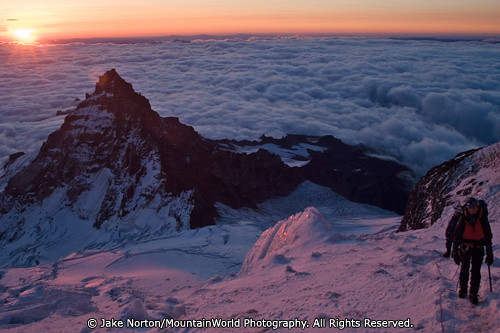
Dear Friends:
A great day in the fight to conquer childhood cancer, our legislation just passed the U.S. House! The final vote tally was 416-0.
Please post and disseminate as far and wide as you can. We at CureSearch are grateful to our wonderful grassroots community for spreading this wonderful news!
The more awareness we do now, the easier we will make it for passage in the Senate.


...HEAVY SNOW WARNING IN EFFECT FROM 6 PM THIS EVENING TO 8 AM
PDT TUESDAY...
.MONDAY...RAIN AND SNOW. SNOW LEVEL 6000 FEET.
.MONDAY NIGHT...RAIN AND SNOW SHOWERS...HEAVY AT TIMES. UP TO 15
INCHES ACCUMULATION. SNOW LEVEL LOWERING TO 2500 FEET BY MIDNIGHT.
.TUESDAY...SHOWERS. TOTAL SNOW ACCUMULATION 6 TO 20 INCHES. SNOW
LEVEL 3500 FEET.
.TUESDAY NIGHT...MOSTLY CLOUDY WITH A CHANCE OF SHOWERS. SNOW
LEVEL 5500 FEET.
.WEDNESDAY...MOSTLY CLOUDY WITH A CHANCE OF SHOWERS. SNOW LEVEL
7000 FEET.
&&
TEMPERATURE AND WIND FORECASTS FOR SELECTED LOCATIONS.
MON MON TUE TUE WED
NIGHT NIGHT
SUMMIT (14411 FT) 7 -6 6 8 10
W 51 NW 45 NW 39 N 30 N 28
"Fight, Ted, fight!"
This mantra, chanted over and over to give moral support to Senator Edward M. Kennedy as he faces brain cancer, drives me nuts. The caring behind it is wonderful; the metaphor is not.
Cancer is not a football game. It's more of an involuntary dance with a partner you didn't choose, more judo than battlefield warfare....
Sontag shows how both diseases have become associated with personal psychological traits. In particular she demonstrates how the metaphors and terms used to describe both syndromes lead to an association between repressed passion and the physical disease itself. She notes the peculiar reversal that "With the modern diseases (once TB, now cancer), the romantic idea that the disease expresses the character is invariably extended to assert that the character causes the disease – because it has not expressed itself. Passion moves inward, striking and blighting the deepest cellular recesses."
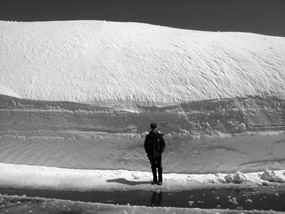
Be prepared for winter conditions. Check avalanche and weather conditions prior to your visit to the backcountry.NOTE: As of June 2, 2008, there is about 11.5 feet of snow on the ground at Paradise (elev. 5,420 feet). The park received heavy snows this winter and spring with approximately 900 inches of snow at this point. This could lead to a late-lingering snowpack that may well affect the early hiking season in that it will make navigating early season hikes quite challenging. Avalanche danger will be a concern in early season as well.
Crevasse training was way cool, downright chilly in fact. Michele and the kids came down with me and spent the night. We went to Northwest Trek on Saturday and saw all the wild animals there. That was fun. We went up and hiked around some at Longmire and watched the pools bubble up. I had to carry the sleeping Henry - the boy refused to nap earlier - and now he couldn't keep his eyes open to check out the deer munching about. Not as heavy as our packs will be, nor as steep of a trail, but a start.
I was better dressed this time with lightweight nylon pants that the legs zip off to make shorts. Didn't do that, too cold and not a speck of blue sky. I was concerned that I would be underdressed, not so. Our guide was in a hurry to get up to where we could practice and I was soon sweating like an overworked peasant farmer. Plenty warm, shed the hat on the way and I remembered to put the hat back on when we got up to the precipice at about 6600 feet. I still need to figure out a sweat management system to keep my glasses from fogging up and becoming useless. Even remembered to reapply sunscreen frequently and happily my head didn't fry.
Before we took the bus up to Paradise, we spent an hour practicing knots, prussic, overhand, figure eights, clove hitch, etc.. At the precipice we started out building ERNST (Equalized, Redundant, No slack, Secure, & Timely) anchoring systems, dead men buried in the snow, stakes driven in, lashed together with rope and carabineers (scratch your nose, don't pick it...).
We then broke up into teams of three with one of us falling over the edge and the other two arresting our fall and rigging up the ropes to pull us up to safety. Single pulley, Z pulley, all pretty cool stuff. A little head scratching trying to remember which end of the rope to pull on after running it through pulleys and such and not let the pour sod dangling over the edge down any more. Realized that I need some more toys and chunks of rope so that I can practice pulling furniture around the house.
The weather was not quite miserable, but it was blowing, raining, and sleeting intermittently. Visibility started out at about 100 yards on the way up and shrunk to about 10 yards on the way down which led to an interesting trip down the mountain. We dropped into a bowl a bit prematurely and had to hike back up to get a better track down to Paradise. It was eerily quiet as we scrambled along trying hard not to lose sight of the person in front of us. We all made it safely back to the bus and made it back to RMI.
Back at RMI they had ropes hanging from the rafters and we practiced climbing up the rope using prussic slings. Felt a bit like Bond, James Bond (and Jim Whittaker) when he used his shoe laces to climb. Henry was cheering me on yelling "Yes! Dad, Did it!" as I rang the bell - that made the whole thing worthwhile, that and the big high five he gave me.
Wow-sounds great, Bob. Rob can regale you with our Vermont version of same, dangling from the warm and dry fly grid 30 feet over the Hyde Park Opera House stage. Thought I'd lost Rob in the lobby for a minute or two, but eventually we did manage to make it out the front door....

The trail from White river campground to glacier basin has patchy snow coverage until your about 1/2 mile past Sherwood forest then it becomes consistent snow all the way to the glacier. There was a slide this winter that may provide some route finding issues before you enter Sherwood forest. If you follow the yellow caution flagging to this slide, continue straight across climbing through some of the debris you will soon find the trail into the forest. The route from camp Curtis to Schurman is very straight forward, but crevasse hazard still exists.
After the road to White River campground opened last Friday,> many people came up to take advantage of the warm sunny weather. There were a good number of parties up also trying to make the first ascent of the Emmons in 2008... .One party over the weekend reached a high point of 14,000 until one of their members took a crevasse fall and they decided to turn around, thankfully the climber was uninjured.The route from Schurman is mostly in early season conditions. There is a large crevasse climbers will have to negotiate at the top of the corridor. From that point the route continues right onto a nice open slope, around another set of crevasses, continuing to the right crossing the bergschrund and finally toward the summit. Most parties have not had trouble ascending the route but seem to become confused in their descent, winding up in places they would rather not be. Wands could be helpful in route finding but remember to remove all the wands you place. Stay tuned for further info and photos to arrive soon. Rangers climbed to 13,000 on Thursday the 29th, conditions were unconsolidated powder with little to no crust. As the mountain warms up things will start to consolidate, until then expect post holing conditions. On the upside the skiing is fabulous on the Emmons.

Caught in small avalanche during winter traverse of Colorado's Ten Mile Range late 1970's. Carried a couple hundred yards or so, banged up but nothing serious.
I'm not sure for him but the time I recall vividly was rock-climbing together in the foothills of Denver. He was leading a climbing pitch and developed his classic migraine headache. His syndrome includes losing his vision for a period of time before the onset of the headache. I had to stand on that cliff wall and wait for his vision to return before he was able to belay me up to the stand....
John: Why climb with Rob and Bob? It's fun to watch them. Just kidding! Seriously, it's very satisfying to share in someone else's discovery of the joys of mountaineering, and I love Mt. Rainier. And yes, you will make good counterweights and human bridges for my glorious and successful ascent...
Linda: I don't think of you as counterweights for crevasse falls because you guys will probably go first. That means that you will be the ones to fall into the crevasse. That's ok because he will be more likely able to rescue you than the other way around.....


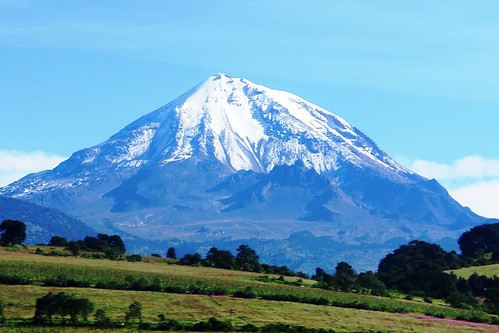
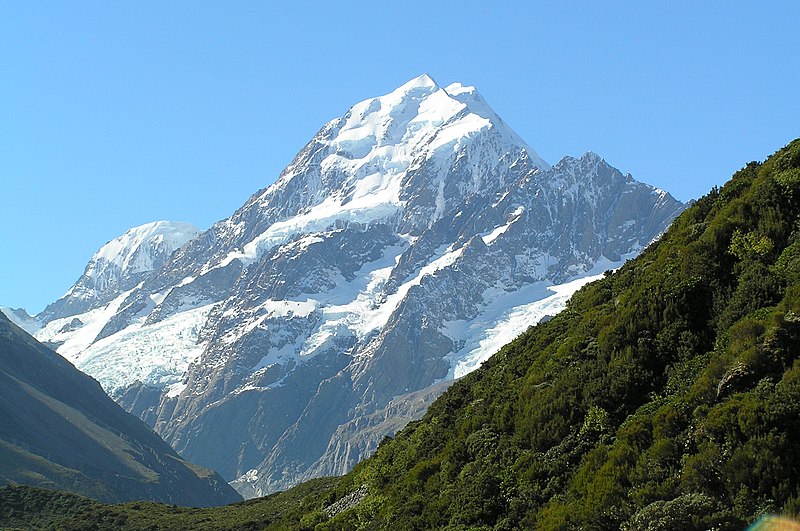


Tonight was just the same as ever, nothing out of the ordinary. But, that’s what got me. Our “ordinary”. I stood there, washing the syringe and realized that my daughter hasn’t complained about taking the medications each and every night in over a year. She simply takes it and takes it and takes it. It’s not normal. It’s not okay. It’s not fine. It’s scary and upsetting....
